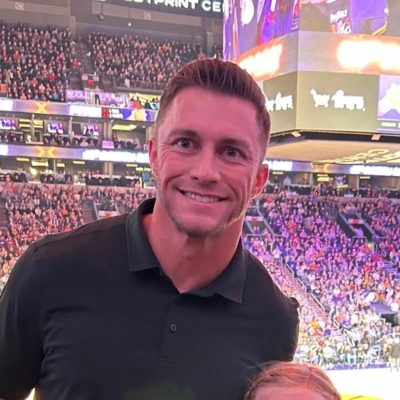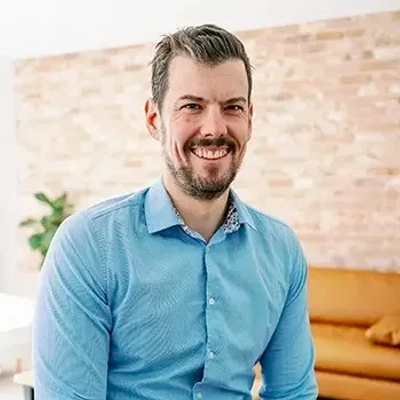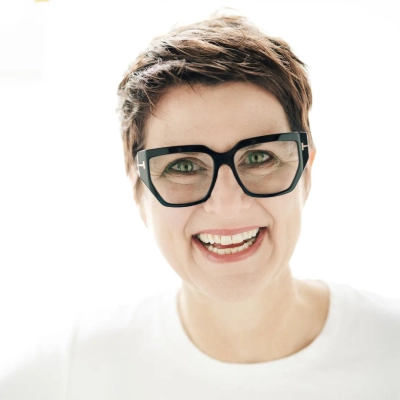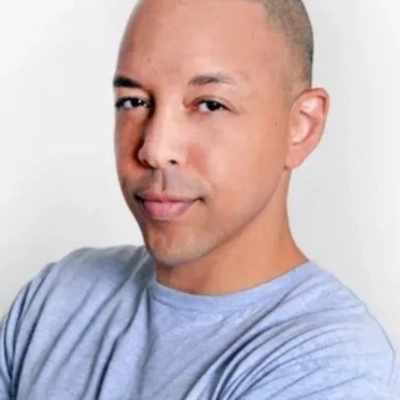17 Global Market Trends That Will Impact Personal Lives
Global market trends are rapidly reshaping everyday life, from privacy concerns to career balances and beyond, as this comprehensive analysis reveals. Leading economists and futurists offer critical perspectives on seventeen key developments that will directly impact personal finances, work arrangements, and lifestyle choices. These expert insights provide practical guidance on adapting to emerging realities like AI integration, supply chain challenges, and the evolution of digital trust.
Privacy Tensions Shape Digital Habits
The growing tension around data privacy—especially as it intersects with AI—is something I see impacting my personal life more and more. As someone who runs a content-driven site, I've already had to rethink how much data we collect, what tools we use, and how transparent we are with users.
On a personal level, I've started tightening up my own digital habits—using more privacy-first tools, opting out of data-sharing wherever I can, and paying closer attention to how AI models are trained. I think the next few years will be about deciding where we draw the line between convenience and control. I'd rather get ahead of that now than scramble later.
Remote Work Transforms Career-Life Balance
One global market trend I believe will have a major impact on my personal life is the rapid shift toward remote and hybrid work becoming the global norm. It's already changed how people structure their days, where they live, and how they balance career with personal well-being. For me, the most tangible impact is the growing flexibility to work from anywhere—which is both liberating and demanding.
To prepare, I've been investing in creating a sustainable remote lifestyle. That means upgrading my home workspace for long-term comfort, building digital collaboration skills, and setting clearer boundaries between work and personal time. I've also started exploring ways to diversify my income through digital projects, since the global remote economy is opening up new opportunities across borders.
The bigger shift, though, is mental. Remote work is changing how people define success—it's less about climbing a corporate ladder and more about designing a balanced, meaningful life. I'm preparing by focusing on adaptability, continuous learning, and building strong virtual networks. Those, I think, will be the true currencies of stability in this evolving global market.

AI Companions Enhance Human Clarity
The rise of personalized AI companions is the trend that will reshape my life the most. We're moving from using AI as a tool to living alongside it as a presence, something that understands our patterns, moods, and goals almost better than we do.
I'm preparing by building Aitherapy around that future: ethical, emotionally intelligent systems that enhance human clarity instead of replacing it. For me, the goal isn't to make AI smarter, it's to make our relationship with it more human.

Human Trust Outshines AI Content
Hi,
The global trend that will shape my personal and professional life most in the coming years is Google's increasing reliance on AI to evaluate authority and authenticity. As search evolves toward algorithmic interpretation over human context, the line between real expertise and AI-generated noise is blurring fast. We've already seen this firsthand in one campaign for a new health website, our focus on credible backlinks from verified medical publications helped drive a 321% increase in organic traffic in five months, despite rising competition from AI-written content. That experience taught me that human trust, not machine output, remains the most valuable currency online.
Personally, I'm preparing by doubling down on authenticity investing time in thought leadership, expert collaborations, and ethical link-building that reinforces trust signals Google can't fake. The next global wave of change isn't automation itself; it's how humans prove their expertise in a digital landscape where everyone sounds like an expert. The winners will be the ones who build real credibility link by link, name by name.
Preventive Health Tracking Redefines Wellness
The global shift toward preventive health spending is poised to reshape both professional and personal priorities. As consumers move from reactive care to continuous wellness tracking, healthcare delivery and personal decision-making will increasingly center on data and early intervention. This transition blurs the line between patient and participant, making self-monitoring an integral part of everyday life.
To prepare, I've started integrating biometric data into routine wellness planning—tracking sleep, heart rate, and stress indicators as seriously as financial metrics. Personally, it means treating health maintenance as an investment with compounding returns. Professionally, it reinforces the need to build care systems that empower patients to act before illness, not after. The trend is irreversible, and adapting early ensures both resilience and alignment with where healthcare is truly heading.

Local Suppliers Counter Global Supply Chaos
The global market trend that will have a significant impact on my personal life is the persistent, structural instability of the global supply chain, leading to unpredictable material costs.
This isn't just a business problem; it's a structural stressor on my life. My business relies on a stable cost for shingles, metal, and lumber to give honest quotes. When those prices fluctuate wildly—the chaos of the global market—it forces me to spend my hands-on time outside of work frantically renegotiating bids, managing budget leaks, and absorbing risk. It makes my financial planning and time with my family completely unpredictable.
I am preparing for it by forcing a hands-on, structural re-shoring of my entire supply process. I am aggressively diversifying my material sources to exclusively local and domestic manufacturers, even if the initial hands-on cost is slightly higher. I am sacrificing the lowest possible price for absolute, structural certainty and predictable lead times.
This means I am building partnerships with local fabricators and American shingle manufacturers who are physically close and less vulnerable to overseas chaos. I am trading in the abstract concept of global efficiency for the hands-on security of local integrity. This commitment allows me to provide rock-solid quotes to my clients and regain predictable structural integrity in my own personal time. The best way to prepare for chaos is to be a person who is committed to a simple, hands-on solution that anchors your life to a stable, local foundation.
Digital Currencies Reshape Financial Planning
The growing shift toward digital currencies and decentralized finance is likely to have a significant impact on personal finances in the coming years. As more transactions, investments, and banking services move into blockchain-based systems, traditional financial practices may become less central, affecting everything from savings strategies to international payments. Preparing for this involves educating myself on cryptocurrency fundamentals, exploring secure digital wallets, and gradually diversifying investments to include both traditional and digital assets. Staying informed about regulatory changes and security best practices also helps reduce risks while taking advantage of emerging opportunities. This proactive approach ensures readiness for a financial landscape that increasingly blends conventional and digital systems.

Technology Transforms Traditional Service Industries
One global trend I think will affect my personal life is the growing shift toward remote and automated work. Even in a hands-on industry like pest control, automation and smart home technology are changing how customers expect service to look. More people want to monitor their homes from their phones or schedule visits without ever having to pick up the phone.
To prepare, I've been learning more about how technology fits into daily life rather than fighting against it. At work, that means investing in smarter tools and online systems. Personally, it's about staying adaptable—being open to learning new platforms and keeping a balance between tech convenience and real human connection. The more I embrace change now, the smoother it'll be to navigate whatever comes next.

Skilled Labor Shortage Demands Self-Sufficiency
The rising cost and scarcity of skilled labor are significant concerns. We're already seeing it in home services—fewer people entering trades, higher wages, and growing competition for qualified workers. That shift doesn't just affect my business; it also impacts my personal planning, from budgeting for future home repairs to considering how my kids might build careers in a changing economy.
To prepare, I'm investing more in training and mentorship within our company and encouraging young team members to see this work as a long-term profession, not just a job. On a personal level, I'm focusing on developing practical skills and self-sufficiency. The world's changing fast, but people who can build and fix things will always be in demand—that's a trend I want to be ready for.

Sustainable Practices Redefine Property Investment
One global market trend that I believe will have a significant impact on my personal life is the shift toward sustainable and eco-friendly practices, particularly in real estate and land ownership. With increasing awareness about climate change and resource depletion, there's growing demand for green building materials, energy-efficient homes, and sustainable land development.
To prepare for this shift, I'm actively exploring more sustainable land and property investments through Santa Cruz Properties. We're integrating eco-friendly practices into our land development process, such as offering properties with access to renewable energy sources, emphasizing energy-efficient building options, and prioritizing conservation in our land planning. Personally, I'm also looking into how I can make my own living space more sustainable, such as by adopting solar energy and investing in products that reduce my environmental footprint.
As sustainability becomes a bigger factor in consumer decisions, I believe it will also influence long-term financial security and property values. Being ahead of this trend by prioritizing sustainability in both my business and personal life will not only align with global shifts but also position me to capitalize on the growing demand for eco-conscious options.

Digital Philanthropy Balances Technology With Empathy
The global shift toward digital philanthropy is already reshaping how we connect with generosity. As online giving platforms, crypto donations, and social media fundraisers expand, the traditional boundaries between donors, organizations, and causes are dissolving. This creates both opportunity and responsibility. Donors now expect instant transparency—seeing exactly how their contributions create impact—and organizations must adapt to meet that demand.
For Sunny Glen Children's Home, preparation means embracing technology without losing the personal touch that defines our mission. We're investing in better storytelling tools, digital donor management, and secure online giving systems while maintaining direct human relationships with supporters. Personally, this trend reminds me that stewardship today requires both empathy and adaptability. The tools may evolve, but the purpose remains constant: to create connection, accountability, and lasting hope in a rapidly changing world.

AI Integration Preserves Humanity in Business
One global trend I see shaping both my work and my personal life is the rapid integration of AI and cultural intelligence into how people connect, create, and consume. At Ranked, we're already seeing how automation can amplify reach and efficiency, but it's also reshaping the way humans express creativity and build trust.
I'm preparing for that shift by staying deeply involved in conversations around ethical AI, how we can use it to empower creators rather than replace them. Personally, it means staying curious, learning continuously, and making sure empathy remains part of every technological decision I make.
The next wave of innovation will be defined not just by smarter systems, but by how we use them to preserve humanity in our interactions. If we can balance intelligence with intention, I believe both business and culture will evolve in a way that brings people closer.
System Builders Excel in AI Economy
Running a Shopify growth team, I see AI widen the gap between organized and overwhelmed. The winners build systems. The rest add tools and add chaos.
AI-native work is the shift. Workflows are becoming pipelines where data flows in, automation handles the repeatable, and humans make calls on the edge cases. Credibility is moving from titles to proof assets you can show on demand, like before-after lifts, teardowns, and public changelogs. The operators who can orchestrate people, prompts, and processes will compound faster than those who just "use AI."
My day is compressing into fewer, deeper blocks. Meetings are shorter because prep is richer. Context lives in the pipeline, not in my head. At home, this creates real evening time, but only if I set guardrails so automation doesn't ping me into the night.

Pet Care Boom Requires Lifestyle Adaptation
One global trend I believe will directly impact my personal and professional life is the rising demand for pet care as pet ownership increases worldwide—especially among remote workers and aging populations. This shift is changing not just how families function, but also how entrepreneurs like me plan our time, finances, and lifestyle.
On a personal level, I'm preparing by investing in technology and support systems that give me flexibility—both as a business leader and a pet parent myself. I'm also prioritizing mental well-being and time management, knowing that caregiving responsibilities (for pets and people) will play a bigger role in daily life.
Rather than reacting to the trend, I'm aligning my routines and long-term planning to embrace it—so the growth of the pet-care economy becomes a source of balance, not stress.

Master Operations to Combat Supply Chain Fragmentation
A lot of aspiring leaders think that global trends are a master of a single channel, like stock news. But that's a huge mistake. A person's life isn't to be a master of a single function. Their job is to be a master of the entire operational system.
The global market trend that will have the most significant impact is the Persistent Fragmentation of the Global Supply Chain and the resulting rise in goods cost. This taught me to learn the language of operations. I stop thinking about consumption and start treating every personal asset as a heavy duty logistical investment.
I am preparing for it by implementing a "Personal Operational Buffer." I am aggressively localizing my core asset dependencies (essential services and maintenance). Crucially, I am investing heavily in specialized skills (a unique OEM Cummins certification) that cannot be easily outsourced. This reduces my risk exposure to international shipping volatility.
The impact this has had on my personal life was profound. It changed my approach from being a good marketing person to a person who could lead an entire business. I learned that the best global investment strategy in the world is a failure if the operations team can't deliver on the promise. The best way to be a leader is to understand every part of the business.
My advice is to stop thinking of global trends as a separate problem. You have to see it as a part of a larger, more complex system. The best leaders are the ones who can speak the language of operations and who can understand the entire business. That's a decision that is positioned for success.

Build Flexibility Against Supply Insecurity
The trend that will hit my personal life hardest is **supply insecurity becoming the norm, not the spike**. Tariffs, sanctions, and reshoring are turning every category into a volatility story. Because my work at SourcingXpro sits in the middle of that, I already feel it bleed into personal planning. I don't assume prices or availability will be stable five years out. I prepare by holding more cash buffer than I would in a calm world and by diversifying income so one policy change can't knock my floor. Stability won't come from guessing right, it will come from being built to absorb wrong.

Clarity Becomes Currency in AI Era
The global trend that will shape my personal and professional life most is the acceleration of AI. Not just in technology, but in how it's redefining what it means to be human at work. As AI takes on more cognitive tasks, our edge will come from clarity, knowing who we are, what we value, and where our human judgment makes the difference.
I'm preparing by doubling down on reflection and storytelling (personally through journaling, and professionally through The Ripple Network) where leaders share real experiences of reinvention. The future will reward those who stay adaptable and authentic. I believe clarity is becoming the new currency and the leaders who cultivate it will not only navigate change, but shape it.






